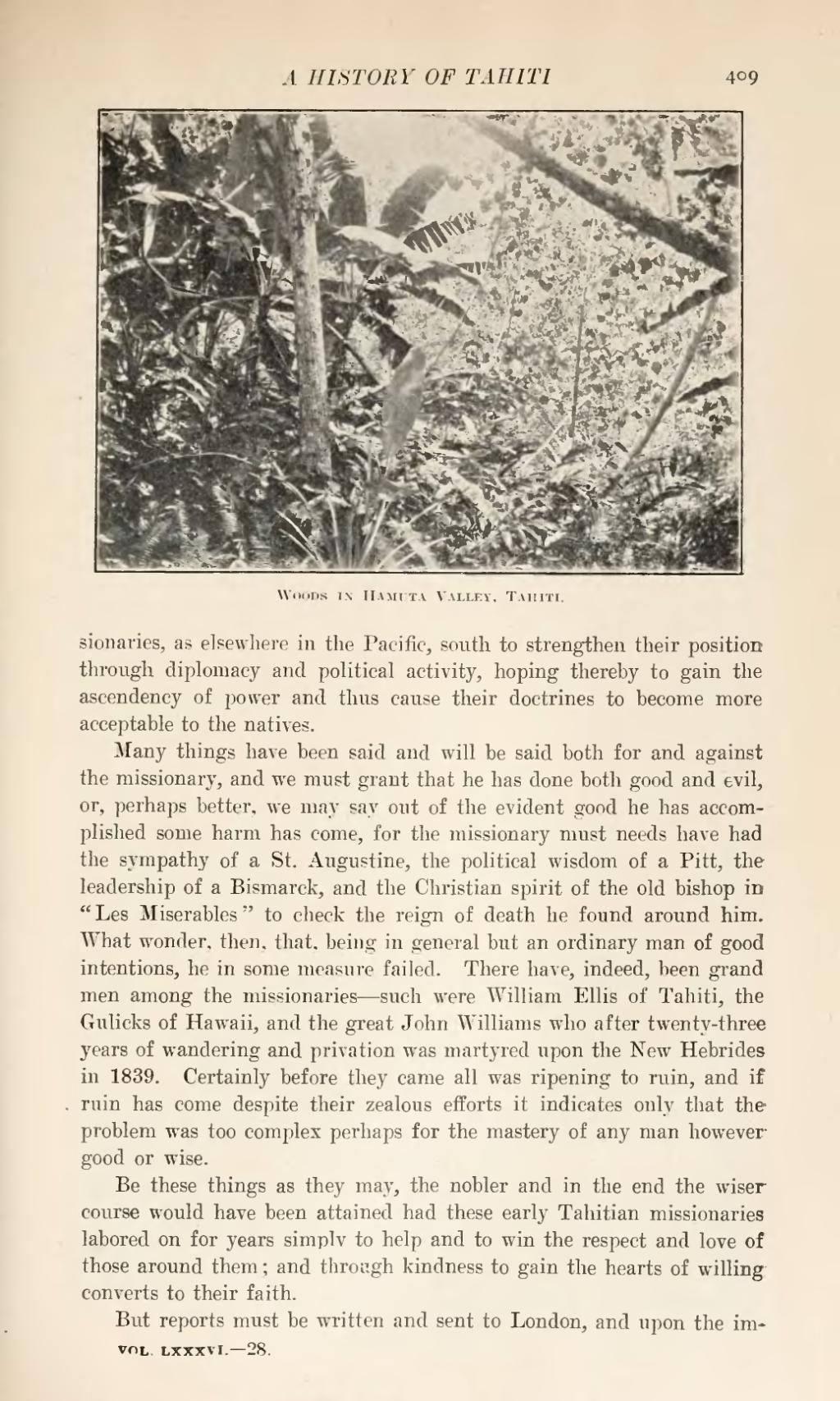sionaries, as elsewhere in the Pacific, south to strengthen their position through diplomacy and political activity, hoping thereby to gain the ascendency of power and thus cause their doctrines to become more acceptable to the natives.
Many things have been said and will be said both for and against the missionary, and we must grant that he has done both good and evil, or, perhaps better, we may say out of the evident good he has accomplished some harm has come, for the missionary must needs have had the sympathy of a St. Augustine, the political wisdom of a Pitt, the leadership of a Bismarck, and the Christian spirit of the old bishop in "Les Miserables" to check the reign of death he found around him. What wonder, then, that, being in general but an ordinary man of good intentions, he in some measure failed. There have, indeed, been grand men among the missionaries—such were William Ellis of Tahiti, the Gulicks of Hawaii, and the great John Williams who after twenty-three years of wandering and privation was martyred upon the New Hebrides in 1839. Certainly before they came all was ripening to ruin, and if ruin has come despite their zealous efforts it indicates only that the problem was too complex perhaps for the mastery of any man however good or wise.
Be these things as they may, the nobler and in the end the wiser course would have been attained had these early Tahitian missionaries labored on for years simply to help and to win the respect and love of those around them; and through kindness to gain the hearts of willing, converts to their faith.
But reports must be written and sent to London, and upon the im-


